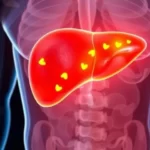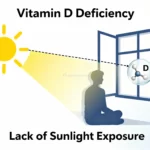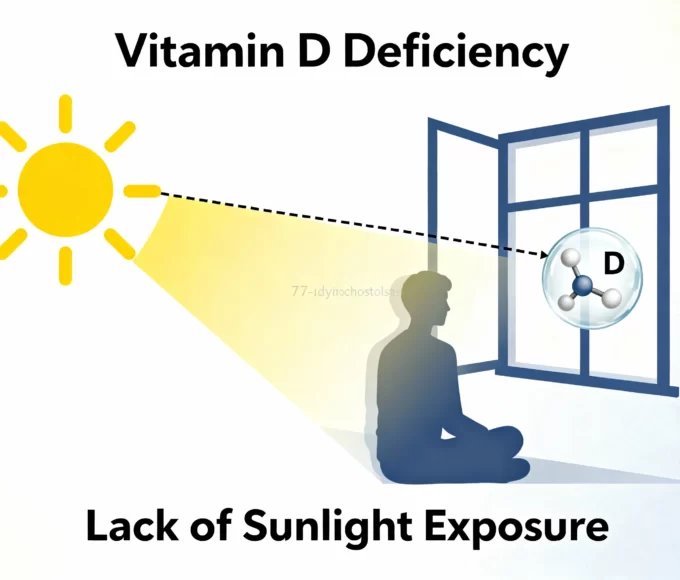Cancer isn’t just a word. For many, it’s a turning point, a challenge that comes unexpectedly, often silently. Detecting it early can make all the difference. That’s why understanding the early warning signs and symptoms of cancer, as well as the importance of addressing them, is crucial. While conventional medicine leads the way in diagnostics and treatment, holistic paths like homeopathy offer supportive avenues that focus on the person, not just the disease.
Cancer: A Complex Disease Rooted in Simplicity
At its core, cancer begins when cells in the body grow out of control. Usually, cells divide and die in an orderly fashion. But, this process breaks down, allowing abnormal cells to thrive, invade nearby tissues, and sometimes spread to distant organs. This disruption can be triggered by various external factors, such as radiation and carcinogens, or internal factors, including hormonal imbalances or inherited genetic mutations.
The insidious nature of lies in their often-quiet beginnings. People might dismiss early signs as minor health annoyances when in reality, these could be the first whisperings of a deeper problem.
What Causes Cancer? Unveiling the Triggers
There’s rarely a single cause. Instead, it emerges from a tangled web of environmental exposures and internal vulnerabilities. Prolonged contact with carcinogenic substances can cause damage to the DNA within cells. Over time, these damaged cells may begin to divide uncontrollably.
Exposure to tobacco smoke, excessive alcohol, pollution, and even certain viral infections like HPV, Hepatitis B and C, and HIV all play a role. But it’s not just what we’re exposed to; our genes, hormones, immune health, and even how we handle stress can all contribute.
Even the socio-economic environment can’t be ignored. Those with limited access to healthcare, poor nutrition, and high stress levels often face a heightened risk of late detection.
Risk Factors That Can’t Be Ignored
Certain risk factors tend to increase the likelihood of developing. Age, for instance, is a major one; as we grow older, our cells have had more time to accumulate mutations. Family history also matters. If cancer is prevalent in your bloodline, the odds of carrying susceptible genes rise.
Then there are lifestyle choices, such as smoking, alcohol consumption, sedentary habits, and poor diets, all of which can encourage cellular mutations. Add to that sun exposure, occupational hazards, and infections like Helicobacter pylori and Epstein-Barr, and the list becomes strikingly comprehensive.
It’s a reminder that isn’t always random; often, it’s the result of years of exposure and accumulated biological wear and tear.
Cancer Early Warning Signs and Symptoms: What to Look Out For
Each type comes with its red flags, but some early symptoms are common across various forms. Unexplained weight loss, persistent fatigue, changes in the skin, and recurring fevers can all signal that something’s amiss in the body. Often, these signs are brushed off—“just stress” or “getting older” but if they persist, they warrant attention.
Leukemia, a type of cancer that affects the blood and bone marrow, may initially present with symptoms such as fatigue, frequent infections, or unexplained bruising. It’s easy to mistake these signs for overwork or a minor viral illness, which is why many cases are detected late.
In breast cancer, the signs are more visible: a lump in the breast, redness or itching around the nipple, and unusual discharge not related to menstruation or breastfeeding. These symptoms are often overlooked until they become too noticeable to ignore.
Ovarian cancer, sadly, often grows silently. By the time symptoms such as bloating or pelvic discomfort appear, the disease is usually in an advanced stage.
Lung cancer often hides behind a persistent cough, chest pain, or shortness of breath. Since these symptoms are also associated with less serious issues, such as infections, many people don’t seek help immediately.
Then there’s stomach cancer, which may cause indigestion or a burning sensation after eating, symptoms so ordinary they rarely trigger alarm. But when accompanied by weight loss or blood in vomit, they signal urgency.
Colon cancer manifests through rectal bleeding or a shift in bowel habits, either constipation or diarrhea. Many mistake these symptoms for dietary reactions or hemorrhoids, delaying crucial diagnosis.
Cancers of the mouth and throat can cause ulcers that don’t heal, persistent soreness, or white patches. While common in smokers and heavy drinkers, anyone can be affected.
In cervical or uterine cancer, irregular bleeding, heavy menstrual cycles, and unusual discharge can all point toward a growing problem inside the reproductive system.
Skin cancer might begin as a mole that changes size, shape, or colour, or as a sore that never heals. Sun lovers and those with fair skin should remain especially vigilant.
Finally, lymphoma and pancreatic cancer are often stealthy. Swollen lymph nodes, night sweats, and fever might be overlooked as signs of an infection. Pancreatic, one of the deadliest, frequently announces itself late, with abdominal pain or jaundice.
A Gentle Path: Homeopathic Support for Cancer Symptoms
Homeopathy doesn’t claim to cure cancer. Instead, it offers a compassionate and individualized approach to managing symptoms and improving quality of life. Rooted in the philosophy of treating the person rather than just the disease, homeopathy examines the totality of symptoms, including physical, emotional, and mental aspects.
Each patient’s experience is unique. One person might feel sharp pain and burning; another may struggle with emotional despair. A trained homeopath listens deeply, aiming to match the total symptom picture to the proper remedy.
Arsenic Album is often prescribed for stomach patients who experience burning pain and restlessness. Nitric Acid might be used when there’s sharp, stinging pain and bleeding. Euphorbium suits patients with bone-related cancer pain that comes like electric shocks.
Sulphur helps those with digestive cancers accompanied by faintness and heat. Kreosote is a key remedy for uterine bleeding, often seen in gynecological cancers. Phytolacca is effective in treating breast infections with hard, painful lumps. Conium and Condurango are helpful in lip and stomach cancers, especially when ulceration is present.
It’s crucial to remember: these remedies are not over-the-counter solutions. They require strict individualization, guided by a skilled homeopath. Taking these medicines without consulting a doctor can be ineffective or even harmful.
Conclusion:
The journey through cancer begins long before the diagnosis. It often starts with whispers, fatigue, a strange pain, or a lump that wasn’t there before. Listening to your body, knowing your family history, and staying informed about the cancer early warning signs and symptoms can make all the difference.
Homeopathy offers a gentle hand in a world of aggressive treatments, but it should be approached wisely and professionally. Whether you choose conventional, holistic, or integrative treatment, early detection remains your strongest ally.
Frequently Asked Questions (FAQ)
Q1. What are the seven major warning signs of cancer?
The seven common warning signs include unexplained weight loss, persistent fatigue, lumps or swelling, unusual bleeding, changes in bowel or bladder habits, sores that don’t heal, and persistent cough or hoarseness.
Q2. What is usually the first sign of cancer?
Often, the first sign is unexplained fatigue or weight loss. However, it varies based on the type of cancer.
Q3. Does your body warn you before cancer?
Yes, the body may exhibit subtle symptoms, such as changes in skin, prolonged coughs, fatigue, or unusual bleeding, which serve as early warning signs.
Q4. What is one symptom that is considered a warning sign for cancer?
A persistent lump or swelling anywhere in the body is a significant red flag that should be evaluated promptly.











